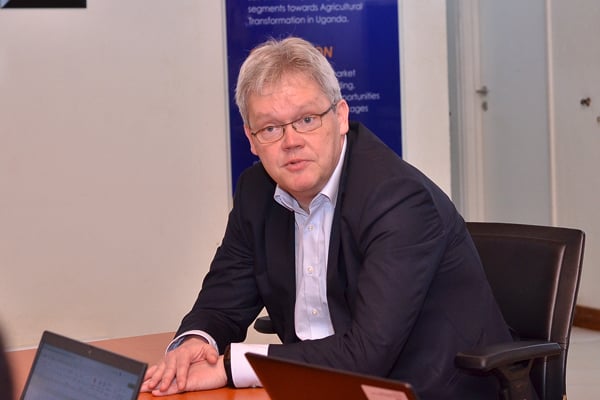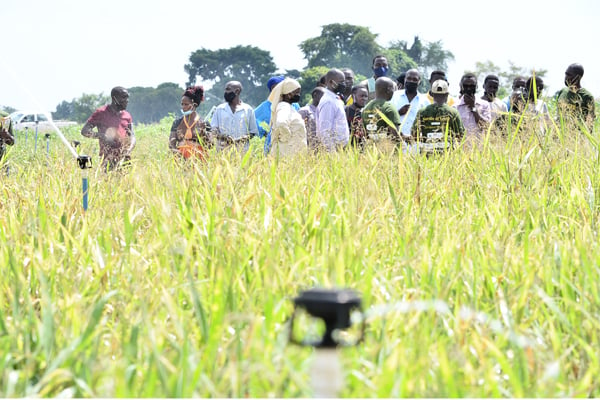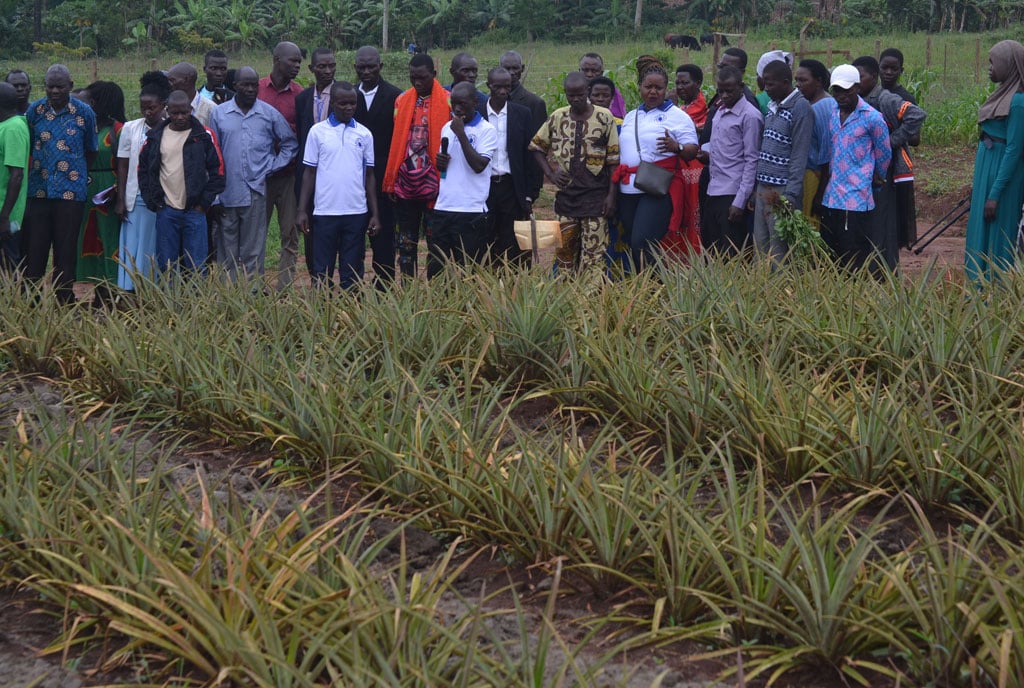Prime
Driving agribusiness through self-sufficient farmers

Paul Van Apeldoorn the Board Chairperson of the Agribusiness Development Centre. Photo/George Katongole
What you need to know:
- The sector is the world’s least developed, with the lowest levels of labour and land productivity. Value added per worker in agriculture is about a quarter of the world’s average.
- The ADC identifies the gaps within the organisation and sets out to fill them through specific training interventions to ensure they are bankable within a certain period of time. After the time has elapsed the group should be in position to access relevant financing. ADC is powered by dfcu and Rabobank Foundation (Netherlands).
Africa’s agriculture sector accounts for about 35 per cent of the continent’s gross domestic product, and provides the livelihood of more than 50 per cent of the continent’s population.
The sector is the world’s least developed, with the lowest levels of labour and land productivity. Value added per worker in agriculture is about a quarter of the world’s average.
The sector is also dominated by smallholders, producing mainly for their own consumption with average farm machinery use in Africa being the lowest in the world.
Against this backdrop, the development of the agribusiness sector holds enormous potential to foster Africa’s economic development. For this to happen, the productivity of Africa’s agribusiness must rise.
The Agribusiness Development Centre (ADC) is one of the main drivers and it purely exists to support farmer-based organisations that have potential to contribute to the agricultural value chain but currently lack the organisational or technical/ structural capacity to operate in a sustainable way.
The organisations selected by the ADC, should be driven by growth which very often requires access to a form of finance as a fundamental need. However, the organisations are not bankable yet because they lack certain skills or governance structures.
The ADC identifies the gaps within the organisation and sets out to fill them through specific training interventions to ensure they are bankable within a certain period of time.
After the time has elapsed the group should be in position to access relevant financing. ADC is powered by dfcu and Rabobank Foundation (Netherlands).
Paul Van Apeldoorn has been appointed as the board chairman and is keen to see a vibrant agribusiness sector in Uganda.
In this interview with Seeds of Gold, he highlights the main activities on his mind.
Congratulations on your new position as the board chairperson of the Agribusiness Development Centre. What experience are you bringing to the table?
Thank you. My name is Paul Van Apeldoorn and I work with the Rabobank Wholesale and Rural department.
I am not new to Uganda having worked with dfcu as Executive Director and Chief Transformation Officer some years ago. I was also one of the inaugural board members of ADC when it was founded by Rabo Foundation and dfcu Limited in 2017 for the purposes of promoting agribusiness bankability.
What strategies do you envision could steer ADC towards being the preferred business development services partner in promoting agricultural transformation in Uganda?
Last year ADC launched her Strategic Plan under the stewardship of my predecessor Madelon Pfeiffer (the Chair of ADC then) and two key strategic objectives to be highlighted here are: sustaining ADC’s operations both at institutional and partner level as well as growing ADC’s business innovatively as the only way to scale operations.
Of course, the above two require opening up to more collaborative approaches than we had in the past and we have to date worked to bring over four such partnerships on board.
How do you plan to engage with key stakeholders?
I have already commenced engaging key stakeholders through a series of meetings, but also within our annual work plan we have scheduled events that my colleagues and or myself shall attend in collaboration with partnerships made and prospected.
Finally, what message would you like to send to the team at Agribusiness Development Centre?
My visit allows me to get a good appreciation of our interventions, how we go about them and the potential we have as team ADC.
More importantly, it gives me an opportunity to physically touch base with the team, appreciate their working environment better and encourage them to leverage our key strengths by nature of our founders/structural ownership and combined experience in the sector, to fulfill our potential.





